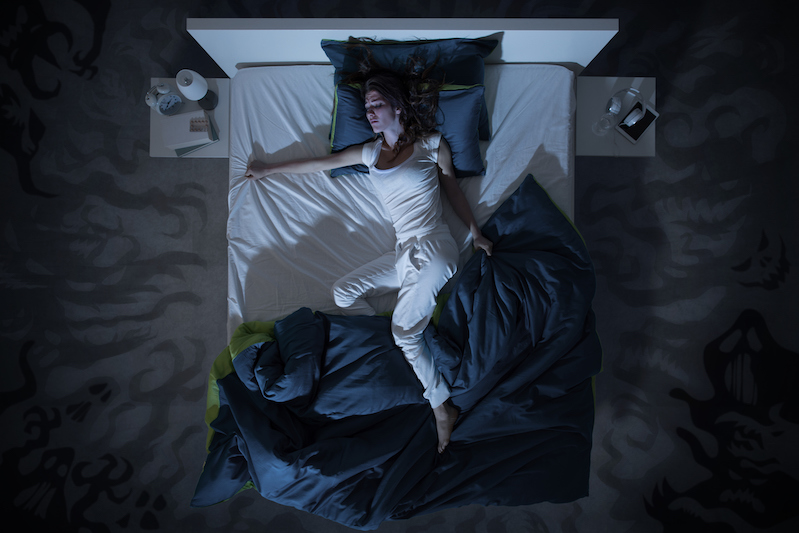
If you know what it’s like to wake up in a puddle of sweat, you know a night sweat. And you’re not alone: Up to 80 percent of women will experience night sweats or hot flashes at some point in their lives.
What Are Night Sweats?
They’re just what they sounds like: you get really hot and sweat a lot in bed. You wake up drenched — hair, clothes, and sheets soaking wet. And it’s not the same as occasionally overheating because you’re sleeping in a hot room. Night sweats can be a persistent, disruptive problem.
According to the National Sleep Foundation, there are four common causes:
- Medications: Drugs for depression and diabetes, and hormone-blocking drugs used to treat cancer can all cause night sweats.
- Infections: If your body is fighting a viral or bacterial infection, your temperature may rise and you may have night sweats.
- A hormone disorder: There are a number of hormone conditions, including hyperthyroidism, that disturb the body’s ability to regulate its temperature.
- Perimenopause: Declining estrogen can trigger night sweats and hot flashes.
Things You Can Do
If night after night you wake up drenched and therefore can’t get good sleep, talk to your doctor to rule out any underlying health issues. If your night sweats are related to perimenopause, there are a few things you can do to help alleviate the problem.
First, curb the alcohol. Alcohol impacts your body’s ability to regulate its temperature. What’s more, your liver gives off heat as it metabolizes alcohol, which in turn can make you sweat. Once you have a few glasses of wine and hit the hay, your body is still working hard to process that vino — and that can cause a night sweat.
Second, go easy on spicy foods, hot beverages, and caffeine. They can also trigger hot flashes and night sweats. If you smoke, that won’t help either.
Other helpful tips: Keep the temperature in your bedroom low, use a bedside or overhead fan, wear loose clothing, trade heavy blankets for light layers, and take measures to reduce the stress in your daily life. Some women say that black cohosh works to curb their hot flashes — talk to your doctor first about that one.
And remember that this, too, shall pass.
For more answers to your burning questions about menopause, read The 7 Biggest Myths About Hot Flashes.
Photo: Demaerre